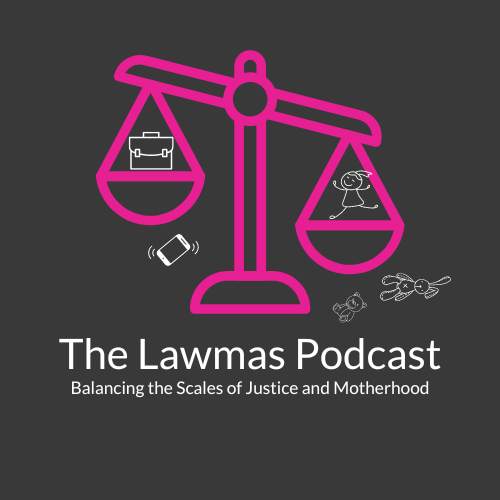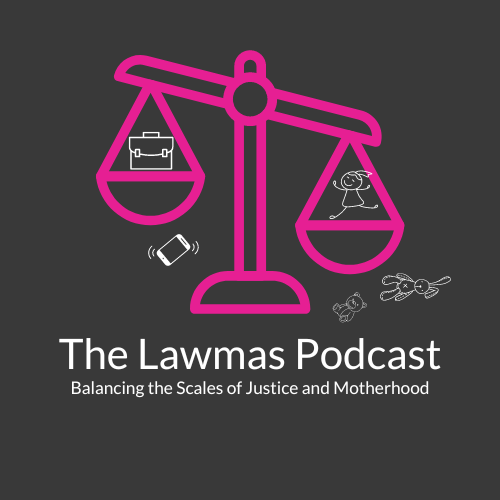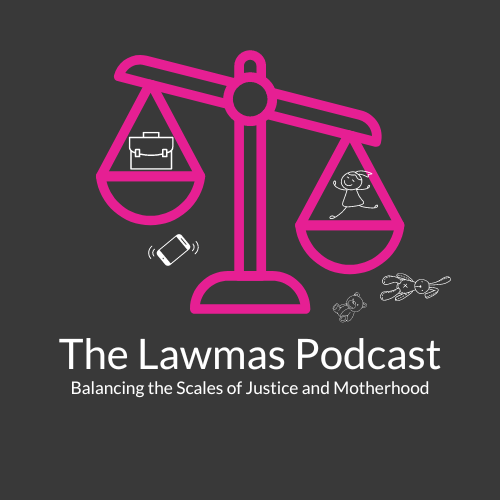Episode Transcript
[00:00:05] Speaker A: Back again.
[00:00:08] Speaker B: We are here to give you another podcast this week. And this week, we want to talk about something that we're not getting political, but it is a little political in this. And we just want to talk about something that is near and dear to our hearts and kind of makes us some of the people we are.
[00:00:26] Speaker A: Yeah, I just think, like, And I don't know if people are just doing it flat out maliciously or just they haven't been taught better. You know, I just remember my midwife telling me one time, when you know better, when you know better, you do better. Right. So what me and Lauren want to talk about today is the use of the R word.
Because we have seen on social media, on Facebook, from some of our friends, family, people that we follow using that in this political climate.
And so, I mean, I just.
I've said it on our introduction episode. I do have a son with special needs. He does have down syndrome. And so it's just. It's very upsetting when I see people use that word or using mentally disabled as an insult.
My child is disabled, and he's perfect.
He is so funny. He is so cute.
And he is just one of the biggest blessings in my life. And so when I see that word or variations of it or using those terms as insults, it's really bothersome. So, Lauren, I appreciate you letting me come on here and kind of talk about this, and I know neither one of us want to really get into who we're voting for, what we're voting for, which policies matter to us and are most important. What we really want to talk about is just how we treat each other when we're going through these political seasons, because it seems like it's just coming up every time there's an election, these nasty words being being used.
[00:02:17] Speaker B: And I think the heart, I will say, as somebody in our generation, like, growing up, people use the R word and conversation, and we didn't think anything about it at the time. And so I know it has been a transition for people in our group, like our age group, because you grew up, like, in elementary school. I remember saying it. And I said it.
[00:02:38] Speaker A: I remember saying it as well. And I'm like, it just upsets me that I did to my core that I ever use that word.
[00:02:46] Speaker B: And I think that's kind of where we're coming from, because I do a lot of my work is in special needs planning. Like, I have. We're each attorneys, but we each have our own area. So I've helped Lacey draft documents for Luke in case something were to ever happen to her and her husband. So that way, Luke's taken care of. And that's kind of the thing is we want to show respect to people. And it just is very heart wrenching when people use that term. And I see so many of my clients are some of the best people in the world, and for people to use that term and belittle them is just heartbreaking.
[00:03:24] Speaker A: Right. And you have a relative as well, with autism?
[00:03:28] Speaker B: Yes, I have a cousin. He is 14 or 15 now. He is autistic.
His mom is one of my best friends, one of the closest people, and she's an amazing mom and an amazing advocate for him. And he is completely mainstreamed right now as far as his education goes. But, I mean, like, he's a little different. He's on the spectrum, but we're all a little different.
[00:03:56] Speaker A: Yeah, absolutely.
[00:03:57] Speaker B: The sweetest person and, yeah, most caring. I remember when I was in the hospital having my first one, his mom texted me that he had got on the computer. Computer and like, text his teacher or something to pray for me because I was having his baby cousins.
[00:04:13] Speaker A: Oh, my gosh. Are you serious? Yes.
[00:04:17] Speaker B: And he. When my dog passed away, they have been like, the sweetest people that, like, came, hugged me, told me they loved me, all that type stuff. So, yeah, I think. And actually that cousin's, I guess, great uncle was also.
He had disabilities at the time. This was before people with disabilities could go to school and stuff. And he was homeschooled, and my great aunt actually taught him how to read and write and pretty much did a lot. And I just think about if he had all the opportunities of today, how much further we could come. And I think that's what we all have to take into account is we need to be our best selves so we can help.
[00:04:59] Speaker A: Right, everybody?
I agree. And, you know, I think it's important to know the history. So the use of the R word was actually a diagnosis years and years ago for people with intellectual disabilities. It was in the. You almost went to medical school. What's the book called?
[00:05:21] Speaker B: I don't know.
[00:05:22] Speaker A: The book with, like, diagnosis. It's like dd, the Grey's Anatomy book.
Clearly, I didn't go to medical school, but it, you know, I'm talking about, like, it was in there as diagnosis.
[00:05:34] Speaker B: Diagnosis.
[00:05:35] Speaker A: It was a true diagnosis. And, you know, growing up, it was used as. As a mean and demeaning word.
And so we've moved past that, and we're trying to move forward, and we're still trying to move forward. And I think we just need everybody listening's help in moving forward. So while it was a diagnosis, it's not anymore. It is intellectual, intellectually disabled.
And that is the diagnosis. So my son is intellectually disabled. He has down syndrome and adhd, but at the end of the day, he's really just Luke. People ask me, he'll do something like, is that common for down syndrome? And I don't know. I don't know what's common for down syndrome or not. I was never around anybody with down syndrome until Luke.
So I just know my son is my son. And, you know, I just, I think that's why I'm just so passionate about not using these words or variations of them, you know, and that's what we're seeing in this political climate is using a variation of the R word to insult one party or another.
And we are seeing just those even mentally disabled being used as a demeaning term. We have to get away from that. Like, we're better than that. Our society deserves better than that. My child, the community deserves to move forward and pass that. We can have discussions about policies and why we support them or not support them without calling each other names and without using these names.
[00:07:17] Speaker B: Yeah, especially names that you know are going to hurt someone. Because people that do have different intellectual capabilities, we all have feelings, we're all people.
[00:07:27] Speaker A: Yes.
[00:07:28] Speaker B: Sometimes that's what we forget. Like maybe because somebody that's on the spectrum doesn't show their emotions to you as much and they don't have them in there that you didn't just hurt their feelings. And I think, well, and one thing I think Lacey to note, she was. How old were you when you had Luke? You are 29.
[00:07:47] Speaker A: 29.
[00:07:48] Speaker B: So it was. She's not the normal cat. You weren't like a 40 year old MOT where the chances were high, like right to anybody and everybody. There's no like, right. It's not some curse or anything like that. It can happen to perfectly everybody out there and we're all people.
[00:08:08] Speaker A: Yeah. And like I said, it was really hard going through being pregnant because I just. It's so many unknowns.
But now that I have him and I'm in this community and now I know so many people with down syndrome of so many different ages. I am just so grateful. I mean, it is just so funny and everybody's personality is different. I think that, you know, society likes to group everybody with down syndrome into, you know, they're always happy, they're always this. I can Tell you, Luke is not always happy. He has a little attitude. I had a text his teacher the other day that he didn't sleep very well because he has to sleep apnea. And that, you know, if he had a little attitude today, that was why, because he was lacking sleep.
But, you know, I think about him and his. Some of his friends. So two of his friends in the down syndrome community are Victor and Wilson. And if you put them all in a room together, they are all so vastly different in their personalities. But also I see, like, me and their moms in their personalities, and me and their moms are also different in our personalities. And I'm like, oh, my gosh, there's little Hollis, there's little Amanda. Yep, I see them. And there's me. There's little mini me. And, you know, so they are.
They're not. They. People with down syndrome should not be just grouped together with their personalities. Look at their parents. They're really going to look and act more like their parents than they are than if you put them together in a room of people with down syndrome.
So I think that's important to recognize as well.
I did actually. I try not to comment on Facebook when it's political, but like I said, this isn't political when you use the R word. And I did. There was a guy. I don't know who he was. Couldn't even tell you his name. I do know whose Facebook profile it was on. It was on Missy. Do you know what I'm talking about? From Union? I don't want to use her last name, but she's so sweet. She was so sweet. I just don't think she saw it or if she did, she just moved on. But somebody had commented on a proposed camera what said, but it was using a variation of the R word. And I commented and said what the word was for and that, you know, he should be able to express himself without using such demeanor, derogatory words.
And he came back at me and called me sensitive or something like that. And I commented back, I said, I'm absolutely not sensitive, but I'm a mom of a boy with an intellectual disability and I will stand up for him. And he actually deleted his whole comment thread.
So now it's gone. And I appreciated that because, like I said, when you know better, you do better. And so maybe he didn't realize because, like you said, it was such a. It was a word that was used so much when we were growing up. My hope is that he just didn't realize how hurtful it was. And when he did, he deleted it and took it away. And I appreciated that. I didn't even need an apology. Just the fact that he took it down meant so much that, you know what? I don't need that out there. I now know better, and I'm gonna be better about conducting myself when online and in person and staying away from this word that's gonna hurt other people.
But maybe I'm just being optimistic, but that's what I think.
[00:11:31] Speaker B: I mean, I think there's still going to be some sucky people out there who are just going to be mean because they're mean. But I think if people can understand the hurt that it causes to people and they're still going to be mean like that, we don't want them in our lives anyways, and we can block them, get rid of them on Facebook. But I think if people know that, you know, we're all just human, we're all just people. And that word does hurt.
[00:11:58] Speaker A: And I did not know this until a few years ago. There was a baseball announcer on for the. For Carolina baseball. He used the R word, and he caught a lot of heat afterwards.
I had a conversation with him, and, you know, he reached out and I said, you know, you get one chance to learn, and then you move forward.
And he said that it was also a word that was very much still used in the baseball, I guess, atmosphere like that. Whatever he said, I can't remember what he said in using it, but he said that it was very much still used. And so we just have to work together. And I'm going to educate you once, maybe twice. But if I know that you now know that this is a hurtful term, that it hurts people's feelings, it devalues people in our society and community that work really hard every day to do things that come so easy for us. If you continue to use that word, then you. I mean, I just have no use for you. Like you said, you are just a sucky person. To be honest, I do understand there's. I feel like I have to educate first, give people the benefit of the doubt because it was used. But once you know better, if you continue to use that word, you are. You're just mean because there are. If you're trying to insult somebody, I don't even know why you would want to do that to begin with, to be honest. But if you want to discuss politics, just discuss, hey, I agree with this, and this is why. I disagree with this, and this is why we don't have to Bring these terms into those discussions.
[00:13:46] Speaker B: And if you want to insult each other, just use basic bad language, bad words, call each other, you know, you're a butthole or something like that. But you don't have to use derogatory terms, right? About people. Just go back and do your basic, you know, slang words.
[00:14:01] Speaker A: Yeah, yeah. I prefer just not using it at all. But yeah, if you're gonna. If you just want to be mean and nasty, don't use derogatory terms with it.
[00:14:11] Speaker B: Just, yeah, use whatever.
[00:14:13] Speaker A: Absolutely, I will. I'm just ready for this to be over and move forward. Because in between elections, it doesn't get as bad. You don't see it as much, but it always is heightened. So, you know, everybody voting November 5th, yes, vote if you want. Don't vote if you don't want to. I'm not one that really pushes it. You know, if it's what you want to do, great, go. Sorry, I'm not one that's like, you have to vote.
You do, you boo. You do, you boo. But we do ask that everybody listening, you know, refrain from this. And if you see others doing it online, if you don't comment, you know, publicly, you know, maybe message them. But let's all work together just to create a better world for all of us, you know, so we can all just live beautifully and feel loved and valued.
[00:15:11] Speaker B: And don't be a keyboard warrior.
[00:15:14] Speaker A: Yes, agreed.
[00:15:15] Speaker B: Don't get on Facebook and Twitter or whatever and be keyboard warriors. Just be good people if you wouldn't want, you know, if you're not going to say it in the real world to some big person that could beat you up for saying it, don't say it online either.
[00:15:28] Speaker A: Agreed. Those things can be screenshot. And you know, think about, if I'm posting this is my boss sees this, what are they gonna say if my.
[00:15:39] Speaker B: Yeah, family court, like, I think about that situation you on and say some rude, nasty term. A Facebook is completely fair game when you go into certain courtrooms. So. And once you put something online, it's always there, so be really careful.
[00:15:55] Speaker A: I can tell you that I know many attorneys for civil, family and criminal. We are all using social media to determine who you are. So make sure that what you are presenting is your best self. You know, read it. And if you don't think this should be written, read in a court of law. If you would be embarrassed if this was read in a court of law, don't post it.
[00:16:22] Speaker B: And you're welcome to follow us on our social medias. Pretty much all you will see are dogs and children.
[00:16:28] Speaker A: But a lot of kid photos and a lot, a lot of dog photos, that's about all.
[00:16:32] Speaker B: We welcome to come follow us on our socials and we'd be happy to have you join us. But thank you for joining in today. And we hope that maybe we've educated some people and made you realize, let's not use a certain word anymore.
[00:16:46] Speaker A: Agreed. Thank you, Lauren.
[00:16:48] Speaker B: Thank you. Bye.


